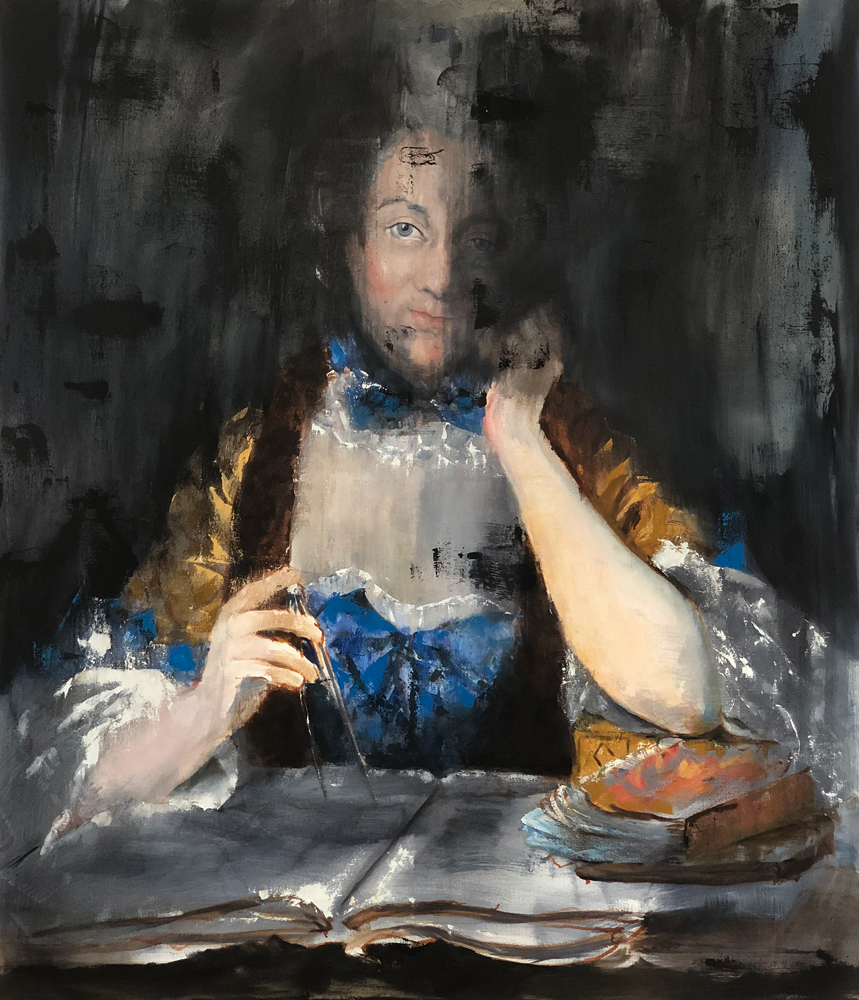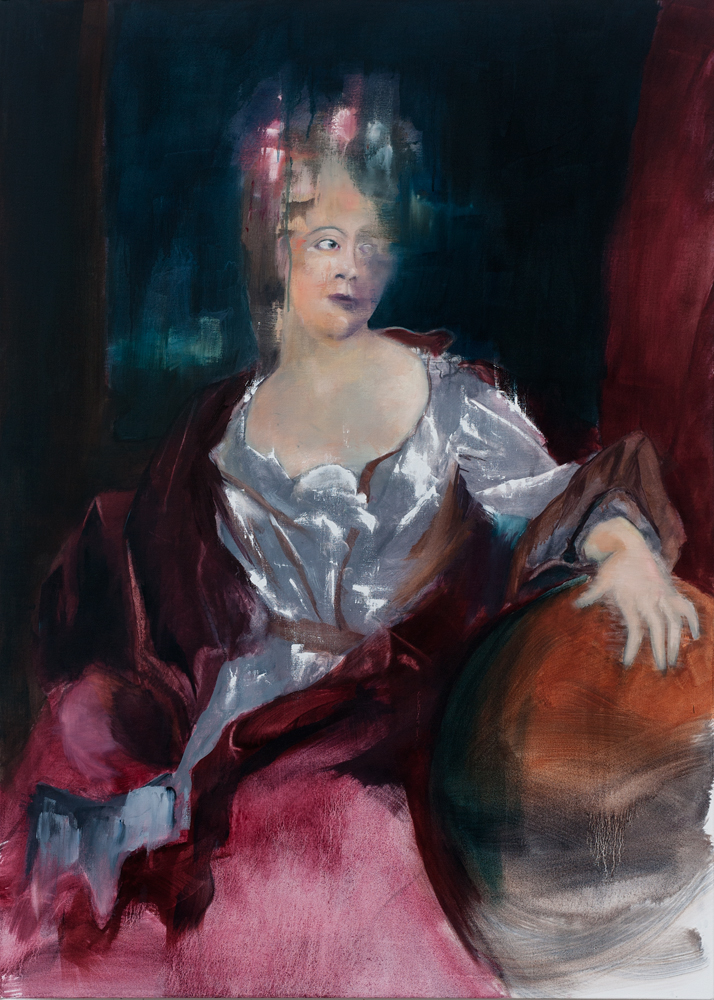“If I were king, I would redress an abuse which cuts back, as it were, one half of human kind. I would have women participate in all human rights, especially those of the mind.”
Émilie Du Châtelet was born in Paris and married Marquis Florent-Claude de Châtelet-Lomont in 1725. In 1733, she met Voltaire who became her lover and life-long intellectual companion. They retired to Du Châtelet's husband's estate—Cirey—which was remodeled to include a laboratory with several instruments for their on-going scientific experiments. Together they spearheaded Newton’s revolution in France and without her contributions, the French Enlightenment of the 1700s would have looked very different.
Émilie du Châtelet, 2018 Oil on Canvas 109x91cm (Private Collection)
In her intellectual work, Du Châtelet focused on natural philosophy, particularly that of Newton, Leibniz and Christian Wolff. Her advanced abilities in physics and mathematics made her especially able to write capably about Newton's physics. She thus contributed to the shift in France away from an acceptance of Cartesian physics and toward the embrace of Newtonian physics. Nonetheless, she was more than just an expositor of others' works, and she was not interested in physics alone. Indeed, still squarely in the tradition of natural philosophy, Du Châtelet sought a metaphysical basis for the Newtonian physics she embraced upon rejecting Cartesianism.
Émilie du Châtelet, 2018 Oil on Canvas 140x100cm (Available for Sale)
As a feminist she pulled no punches and wrote of her struggle to educate herself in higher mathematics and physics (because girls were denied access to good schools, let alone universities): “If I were king,” she wrote, “I would reform an abuse which effectively cuts back half of humanity. I would have women participate in all human rights, and above all, those of the mind.”
Emilie died at the age of forty-three but despite her short life, Emilie was a truly unique woman and scholar. Among her greatest achievements were her Institutions du physique and the translation of Newton's Principia, which was published after her death along with a "Preface historique" by Voltaire.
Émilie du Châtelet, 2018 Oil on Paper 28x28cm (Available for Sale)


